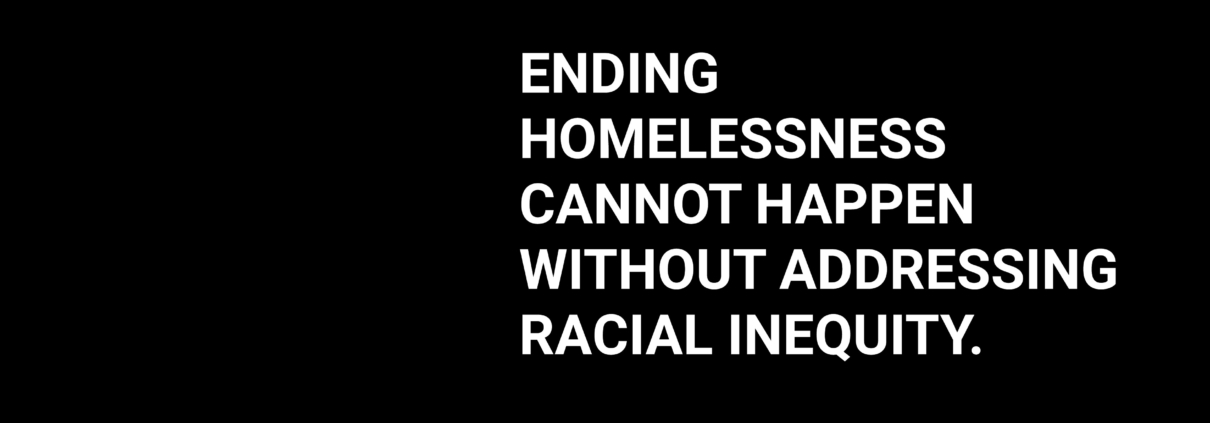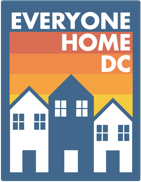Homelessness & Racial Inequity
Ending homelessness cannot happen without addressing racial inequity. In the United States, Black Americans are disproportionately impacted by homelessness, making up 40 percent of the homeless population, while representing only 13 percent of the population. Black people are five times more likely to experience homelessness than white people. In Washington, DC, Black or African American make up 86.4 percent of the homeless population, while representing only 46.6 percent of our city’s population. AND, according to the National Alliance to End Homelessness, this imbalance is not improving over time.
The overrepresentation of Black Americans in the homeless population is no accident. It is the result of historical and continued racism–from slavery and violent land theft to housing discrimination that exists even today. Black people are more likely to experience poverty and other social gaps that place people at risk of homelessness, ranging from interactions with the child welfare and criminal legal systems to lack of access to affordable housing, employment and health care, and the longstanding impacts from the practice of redlining, which prohibited black people from accruing land and wealth. Black people are also more likely to experience bias within the very systems and data algorithms designed to support them.
Everyone Home DC knows that the systems, programs, and individuals that exist to serve people experiencing homelessness must continue to intentionally address the myriad of injustices that have resulted from systemic racism and racial inequity. We are committed to addressing the disparities that exist in the way services across our city are provided, and our city must adequately fund programs to ensure all Black people have access to safe, affordable, and comfortable homes in the District.
To continue learning, we recommend checking out the resources available about racial inequality available on the National Alliance to End Homelessness website.




